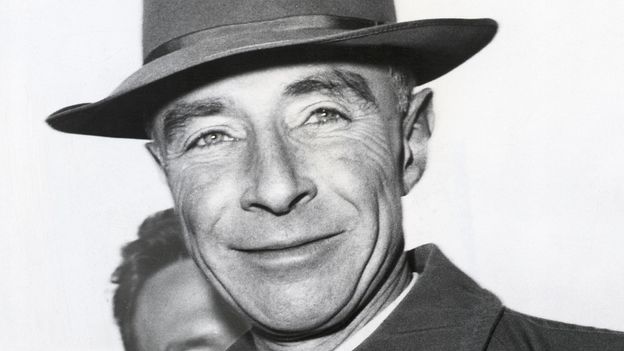[ad_1]
By Bird and Sherwin’s account, the contradictions in Oppenheimer’s character – the qualities that have left both friends and biographers at a loss to explain him – seem to have been present from his earliest years. Born in New York City in 1904, Oppenheimer was the child of first-generation German Jewish immigrants who had become wealthy through the textiles trade. The family home was a large apartment on the Upper West Side with three maids, a chauffeur, and European art on the walls.
Despite this luxurious upbringing, Oppenheimer was recalled as unspoiled and generous by childhood friends. A school friend, Jane Didisheim, remembered him as someone who “blushed extraordinarily easily”, who was “very frail, very pink-cheeked, very shy…”, but also “very brilliant”. “Very quickly everybody admitted that he was different from all the others and superior,” she said.
By the age of nine, he was reading philosophy in Greek and Latin, and was obsessed with mineralogy – roaming Central Park and writing letters to the New York Mineralogical Club about what he found. His letters were so competent that the Club mistook him for an adult and invited him to make a presentation. This intellectual nature contributed to a degree of solitude in the young Oppenheimer, write Bird and Sherwin. “He was usually preoccupied with whatever he was doing or thinking,” recalled a friend. He was uninterested in conforming to gender expectations – taking no interest in sports or the “rough and tumble of his age-group” as his cousin put it; “He was often teased and ridiculed for not being like other fellows.” But his parents were convinced of his genius.
“I repaid my parents’ confidence in me by developing an unpleasant ego,” Oppenheimer later commented, “which I am sure must have affronted both children and adults who were unfortunate enough to come into contact with me.” “It’s no fun,” he once told another friend, “to turn the pages of a book and say, ‘yes, yes, of course, I know that’.”
When he left home to study chemistry at Harvard University, the fragility of Oppenheimer’s psychological make-up was exposed: his brittle arrogance and thinly-masked sensitivity appearing to serve him poorly. In a letter from 1923, published in a 1980 collection edited by Alice Kimbal Smith and Charles Weiner, he wrote: “I labour and write innumerable theses, notes, poems, stories and junk… I make stenches in three different labs…I serve tea and talk learnedly to a few lost souls, go off for the weekend to distill low grade energy into laughter and exhaustion, read Greek, commit faux pas, search my desk for letters, and wish I were dead. Voila.”
[ad_2]
Source link
